The devil you know: Forensic psychiatry and getting inside the minds of criminals
In this new extract from Dr Gwen Adshead and Eileen Horne’s book, we meet Jimmy who was sentenced to life for a gang-related murder and sectioned for psychiatric treatment
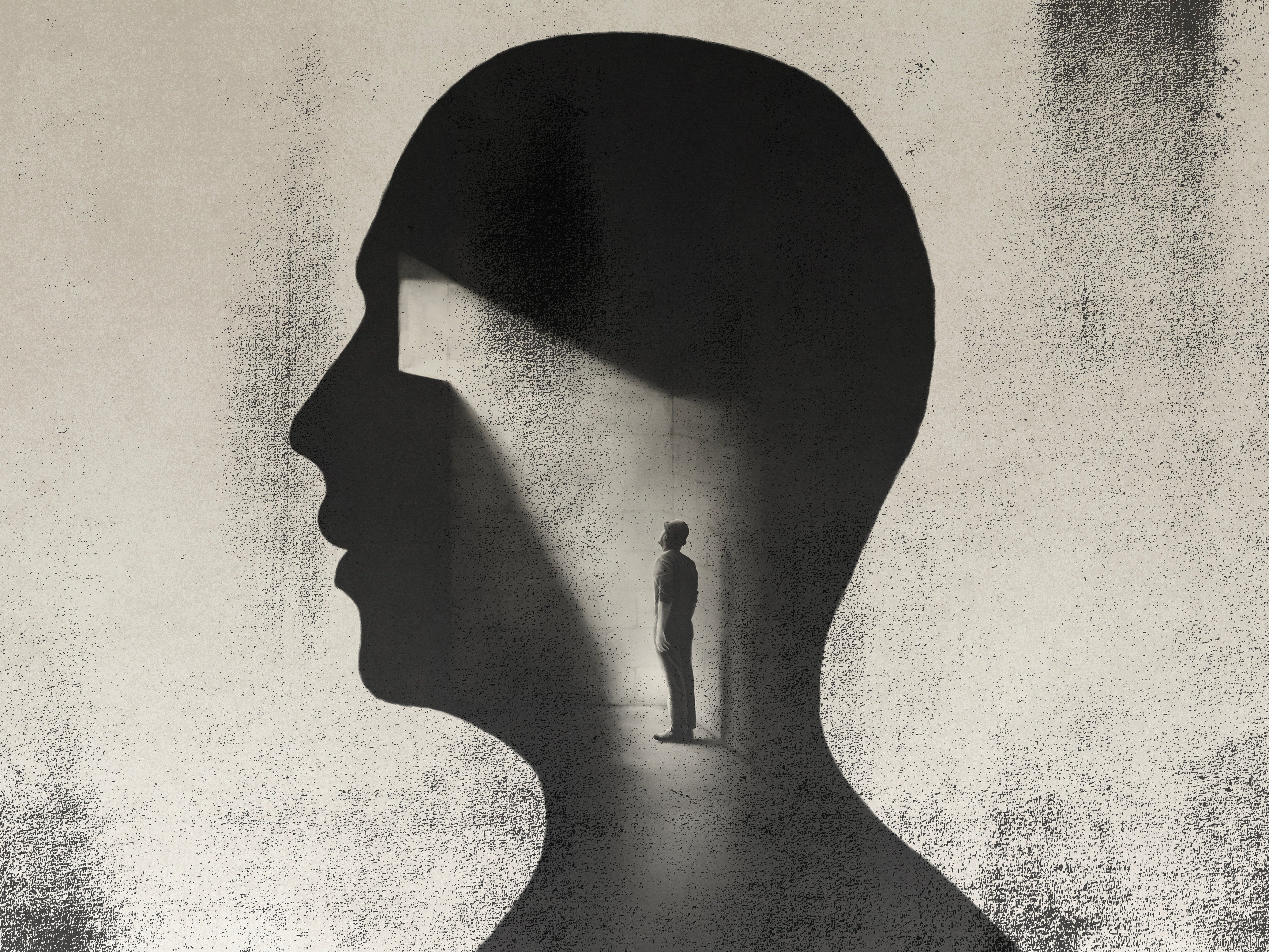
Early on in my career, as a young trainee forensic psychiatrist at Broadmoor back in the late 1980s, I was sent to a prison to evaluate a prisoner for transfer to the hospital for psychiatric treatment. Jamal was a young man serving a life sentence for a gang-related murder whose mental health had apparently deteriorated so badly that he had been held in the segregation unit for six weeks; the prison psychiatrist had requested that he be “sectioned”. My rookie nervousness increased when I learned he’d been smearing his cell and hurling faeces at the prison officers. I was advised to speak to him through a gap in the door and “watch his hands in case he has more s*** to throw”. I peered in at him cautiously, a thin, childlike form curled up on the bed, and lamely attempted to make a connection. Before long he was provoked enough to launch his naked body at the door, baring his teeth and hissing at me. I was quick to recommend him for transfer.
Thirty years on I was working with a clinical team putting together a therapy group for violent offenders centred on the theme of fatherhood, and I went to offer a place to “Jimmy”. A portly older patient, he was articulate and open, with a friendly smile. He’d been in and out of secure hospital over the years, recently becoming distressed upon learning of a daughter he’d never known, born after he went to prison. She was now a grown woman wishing to make contact.
When, to my amazement, I eventually realised that Jimmy was the same Jamal I’d met long ago, I told him so, but understandably, given his mental distress at that time, he had no memory of our dramatic first encounter.
– Dr Gwen Adshead
I pieced Jimmy’s early life together from the various records, taking some time to access old reports from 30 years ago. Back when there were more resources and time for social workers and psychiatrists to talk to people, they took better and more extensive histories, so there was a lot of information for me to digest. I learned that Jimmy had been born to a 15-year-old single mother with a drug habit who went on to have three further children over the next six years. Social services had inevitably got involved, as it became clear that his mother (barely an adult herself) could not care for any of her children. Jimmy bounced in and out of foster care throughout his childhood, and then started to get into trouble from his early teens. Arrested on a murder charge just before his eighteenth birthday, he had a short stint on remand in a young offenders institution, before his conviction and subsequent admission to adult prison.
I scrolled through the trial transcripts, reading about the homicide. One night, the gang that Jimmy ran with was confronted by a rival bunch of drug dealers who were trying to make inroads into their territory. There was a midnight brawl in the city centre, and when shots were fired, a 13-year-old boy from the other gang was killed. Jimmy was one of three gang members charged with joint-enterprise homicide for the murder of the boy. It seemed to be an open-and-shut case; Jimmy was still holding the murder weapon when the police arrived. Curious to see young Jimmy, and wondering if I’d glimpse something closer to the Jamal that I’d met long ago in seg, I clicked on a video file from the trial records containing surveillance camera footage from the crime scene. The picture quality was poor. CCTV has been around for decades but only came into common usage in public spaces in the UK during the 1980s, in response to a rise in crime. The technology back then was pretty low-grade and it was hard to imagine that this material had been much use to anyone in court. I played the brief clip a few times and could discern only that there were some slight, hazy figures coming together in a grey muddle, moving and merging like amoebae under a microscope, then becoming a pulsing blob which suddenly broke up with a couple of white flashes of gunfire. Then came a rapid dispersal of shadowy shapes, human smoke drifting off in all directions, leaving behind an amorphous lump on the ground. It looked more like a rock or a blanket or some discarded rubbish than someone’s young son who would never become a man.
I began to see some similarities between my own life story and Jimmy’s over the three decades since we first met, which I found both disconcerting and moving. We had both spent our adult years in custodial settings, like prisons and secure psychiatric hospitals; we had both explored how faith might inform a person’s identity and their relationships, he through Islam, and I through a deepening experience of Christianity. I’d had a close relative who had converted to Catholicism and ultimately entered a monastery, where, just like Jamal, they had acquired a new forename in accordance with sacramental tradition, as a symbol of a new life in faith. And Jimmy and I had parenthood in common too, with grown children who might want to ask us questions we couldn’t answer, although I had enjoyed the blessing of living with mine for all their years and witnessing their remarkable process of growth.
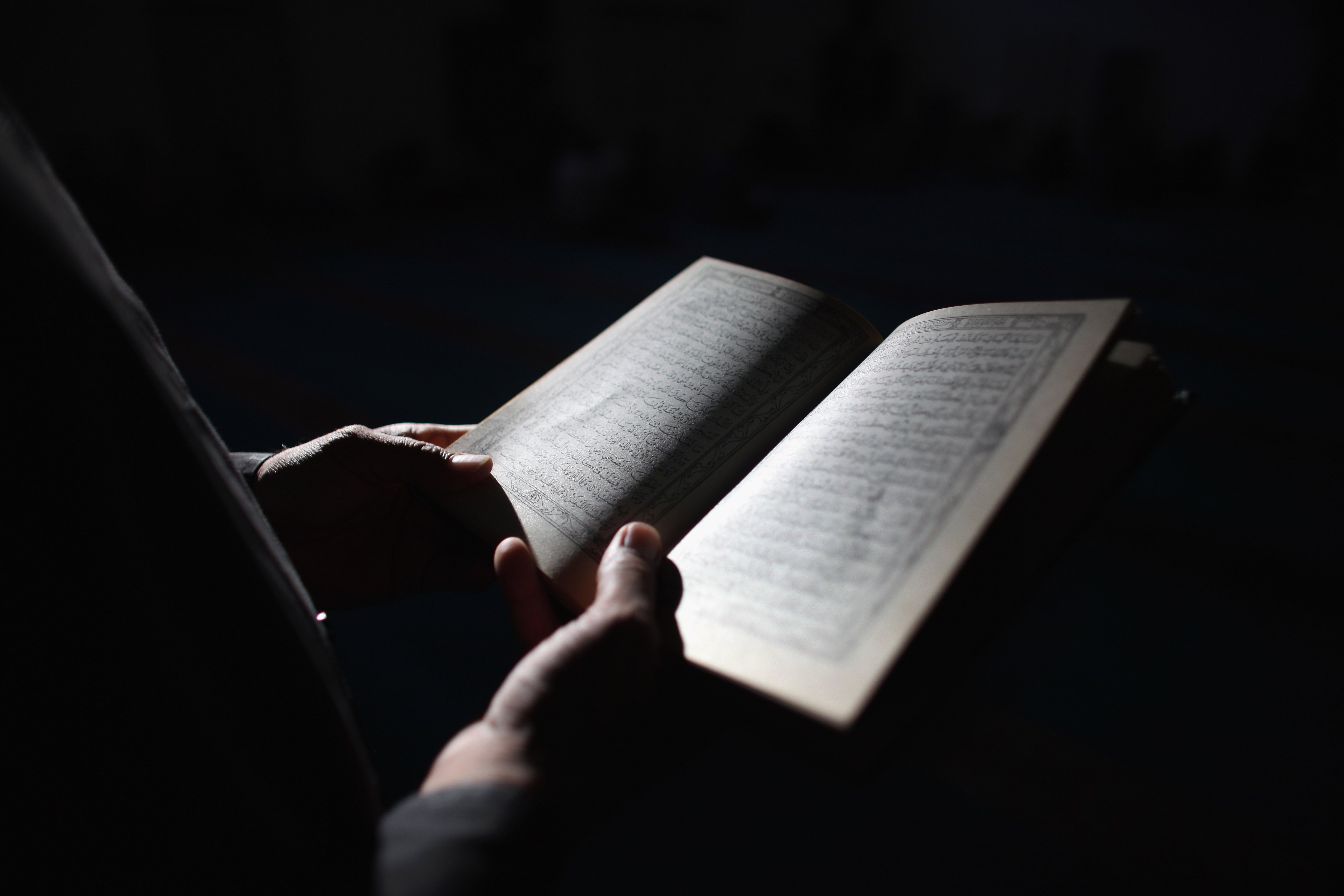
We had several more individual sessions together in preparation for the Fathers Group, and Jimmy seemed to welcome them, always showing up on time and always responsive, although his mood was sometimes low. His conversation was still punctuated by this idea that he “didn’t know” much about his early life. “My illness . . .” he would say, ducking his head. “I can’t remember.” But one day, he did manage to tell me a little about his mother. We’d been speaking about Will, his Scottish primary nurse. “My mum was part Scottish, I think,” he said. I let that rest for a moment; then, since he’d invited her into the discussion, I asked, “What was she like?” I was bracing myself for a dismissive lift of the shoulders, but instead he surprised me with a few details, blurted out in a shortlist. “Blonde. Skinny. Lots of freckles, all over. Sometimes angry, sometimes soft.” “Angry?” “About me, yeah.” I waited for him to offer more, noticing the trembling in his hands again and the way he fought to keep his voice steady. “She didn’t want me. I was an accident. I’m a bad seed, she always said. A bad seed.” He looked so vulnerable as he recalled this, as if his mother had sentenced him just as the judge had done. “Bad seed” is such a pernicious phrase, often heard in ill-informed debates about nature and nurture, as if humans can be flawed from conception and “born bad”.
It was small wonder he might want to change who he was and become someone else’s son – and Islam celebrates fathers as loving carers and providers, with a ready-made brotherhood forming a spiritual family. Jimmy dropped his head into his hands, rubbing his bare skull again as if to cleanse himself of the harsh words his mother had imprinted there, and we sat in silence together like that for some time. Though I knew this was something that the group might bring out and explore, I wished he were able to tell me if he knew or felt anything at all about his birth father. But he didn’t – and I didn’t prompt him. I would let him lead.
When I next met with Jimmy, I could see he was down. His body language was always expressive, but now he slouched in and flopped down in his chair, clasping his hands across his broad belly and staring down at his feet, barely responding when I greeted him. When he didn’t say anything for several minutes, I simply asked if he’d like to pick up where we had left off last time; we’d been talking a little more about his conversion to Islam.
At first, I thought that was kind of, like, crazy. He was just always peaceful, always on about accepting things as they are and Allah will protect you, stuff like that
I’d heard how Jimmy had had a hard time in prison from the start. This was mainly due to his slight, boyish appearance, which made him physically vulnerable to those who wanted to bully or suborn others. Any resistance would lead to more abuse, and the prison staff either were too busy to notice or sometimes looked the other way. He had already told me that not long after his conviction he was moved to a prison where he was targeted as a whipping boy by some other young men. He didn’t go into a lot of detail, but I got the impression that his tormentors were relentless, punching and kicking him when he went by, stealing his things, spitting in his food. One day they had torn apart his cell – “ripping up my stuff and taking a shit on the bed” – while he was out for a brief period of exercise in the yard. An older man called Abdullah, who lived three cells down from him, had intervened, helping Jimmy restore order to his cell and telling the others to stand down – enough was enough. “And did they?” “He was a big bloke, he had some respect,” Jimmy had explained, with a touch of pride.
“Abdullah sounds kind, from what you were saying last time. You said he helped you?” I detected a softening in Jimmy then, as if the memory was warming. “Yeah. He thought I was one of them at first, I guess.” “One of them?” “You know, a P**i or something. But I told him I was Italian.” I raised an eyebrow. “I always said that as a kid, like when people tried to bash me around for being a P**i, you know?” Such a casual addition to the catalogue of maltreatment he’d experienced in childhood. “And after he befriended you, did Abdullah invite you to convert to Islam?” Jimmy looked a little affronted. “It doesn’t work like that, Dr Gwen. It’s like, you have to ask for yourself when you’re ready. That’s what Abdullah said. He just took me along to see the imam with him. Talked to me, introduced me to his mates.” I was mindful that Jimmy’s usually patchy long-term memory seemed much sharpened when talking about this important relationship.
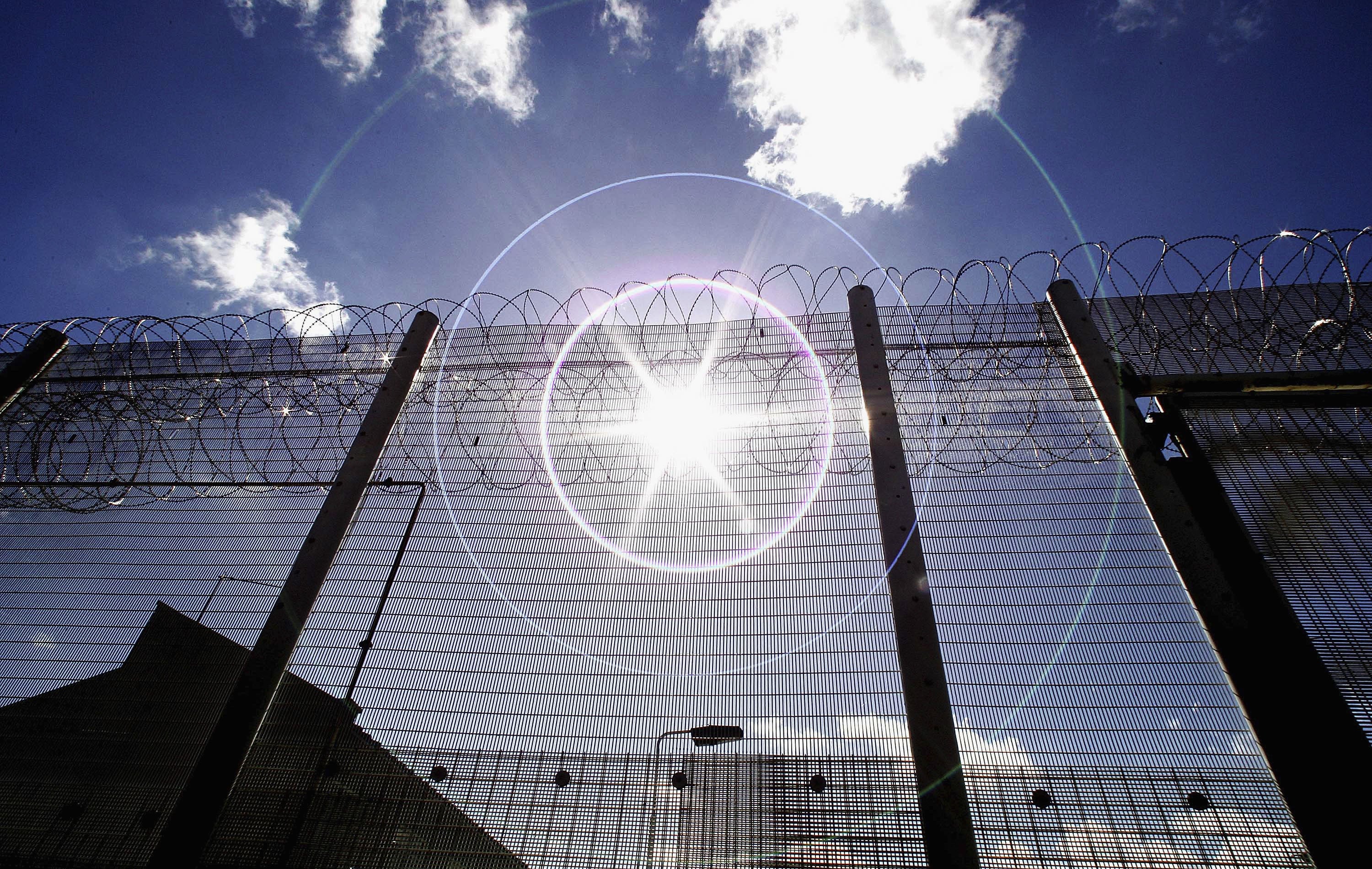
”I could tell him things, and he never got mad or said I was wrong or bad,” he went on. “At first, I thought that was kind of, like, crazy. He was just always peaceful, always on about accepting things as they are and Allah will protect you, stuff like that. So after a while, I felt like I could tell him... I mean, I wasn’t sure, but I think my dad wasn’t Italian. Maybe he was a Muslim. Algerian or something, I heard my mum say that one time. But I didn’t want to be like my dad.” This was such an important turn in our conversation that I made a real effort to hold myself entirely still, my expression sympathetic and interested, while inside I was willing him on to try and say more about this father whom he’d never mentioned till now. “I said to Abdullah... that thing she always said, you know? I’m a bad seed. And he told me...” He trailed off, perhaps trying to recall the man’s exact words. I let him search, and eventually he said, “Abdullah told me, ‘In the eyes of Allah there is no such thing as a bad seed. There’s only bad soil, and faith and love can help us to grow, like water and sunlight.’” His delivery was matter-of-fact, but hearing him repeat that simple metaphor about the power of nurture moved me. It sounded like it had meant the world to him, and I recognised it as a kind of distillation of so much that I’d learned over the years since we’d first met.
This introduction to Islam would have a profound and lasting effect on his life. Being a member of any faith group can be a protective factor in people’s mental health, in or out of prison, although obviously it is not a guarantee of either good mental health or non-offending. Those who are suspicious of organised religion often point to the way it is used to justify antisocial acts, including violence and cruelty. Some atheists might go further and suggest that faith is prima facie evidence of irrationality, if not madness. But philosophically, faith rests on reason and doubt, not the psychotic certainties attending certain kinds of mental illness. For Jimmy, his introduction to Islam had provided an exit route from the chaos, loneliness and pain of his life up to that point, and it had been good for him, at least initially. He had found a ready-made, protective social group, the first family he had ever known.
On his twenty-first birthday, he converted, making the declaration of faith called the shahada, affirming that God is the only deity worthy of worship and Muhammad His Prophet and messenger. He would also choose his new name, although that was more of an expectation than a requirement, Jimmy explained to me, but “it felt like a new start, and I wanted to do what he wanted”. “Abdullah?” I clarified. “Yeah. I mean, I believed, but I also wanted to, like, make him happy and proud, you know?” This sounded very like many a son and their father, I thought but did not say.
He had felt guilty about lapsing as a Muslim and had hated confessing to Abdullah that he was no longer Jamal. But Abdullah had never criticised him about that
Instead, I asked what had made him choose the name Jamal, thinking of how important names had been to some of my patients, like Charlotte, who left her nickname of Charlie behind, or Gabriel, so proud that his name signified “strength”. But perhaps Jimmy had not chosen his Muslim name at all. I suddenly thought I might be projecting my knowledge of the process a nun went through before her first vows, how the whole community prayed for discernment in choosing a name for their newest member, which is conferred in a ceremony of rebirth and commitment. But Jimmy was adamant he’d picked out his own, and he’d chosen Jamal because he’d discovered when studying the Quran that it signified beauty. “Or handsome. And I thought, I want to be called handsome every day, you know?” He broke into his broad, beautiful smile, and it was like spring sunshine.
After conversion, Jamal devoted himself to study and prayer and stayed out of trouble. He was serving a life sentence, but with good behaviour he would have been on track to do the courses he needed to complete and apply for parole. He might have emerged before he was thirty, with his whole life before him. Tragically, that’s not how it panned out. Instead, Abdullah was released after a few years, and Jamal was moved to yet another prison. This meant the loss of a hard-won sense of security for him, and he became paranoid. He was increasingly hostile and assaultive, launching what he saw as pre-emptive attacks on others without warning or provocation. He began to talk about being possessed by a djinn, a spirit in early Arabian and later Islamic mythology who can be summoned by a sorcerer. He stopped eating after accusing prison staff of tampering with his halal meals, even though they came in sealed packets. He had ended up in seg, and his first referral to Broadmoor had been made, which was where I’d come in.
In the ensuing years, he had shuttled back and forth between prison and hospital, in a process of escalating aggression and mental decline that hampered any chance of him progressing through the prison system, let alone being paroled and released. He was one of those unfortunates who got “stuck”, serving nearly three times the length of his original tariff. Many such prisoners serve their sentences several times over; I know of one case in which a man served 20 years for an offence with an 18-month sentence.
After the 9/11 terrorist attacks in the US, there was a ripple effect both there and around the western world that led to increased Islamophobic attacks on prisoners. This perhaps reflected an unthinking fear response that was rife in the world outside, recalling Auden’s wise observation that “those to whom evil is done do evil in return.” Worn down by ever more frenzied bullying from some of his fellow inmates, Jamal’s faith wavered, and eventually he changed his name back to Jimmy, or as he put it: “I gave it all up.”
“So how did you find your way back to Islam?” I asked. Jimmy put a hand over his heart, his face serious, and said, “I was lucky.” Following one of his stints in hospital, he was moved to a new prison, and by chance he heard news of Abdullah from a guy who used to worship in the same mosque as him. With the help of his offender manager, Jimmy was able to write to his old mentor, and they’d begun to correspond. “I saved every letter, you know.” He sniffed, looking away from me out towards the perimeter fence, scanning the distant hills as if he might see his old friend appear on the horizon, walking towards him, waving in greeting. Then he added, so softly I nearly didn’t catch it, “I miss him.” I nodded, understanding without words.
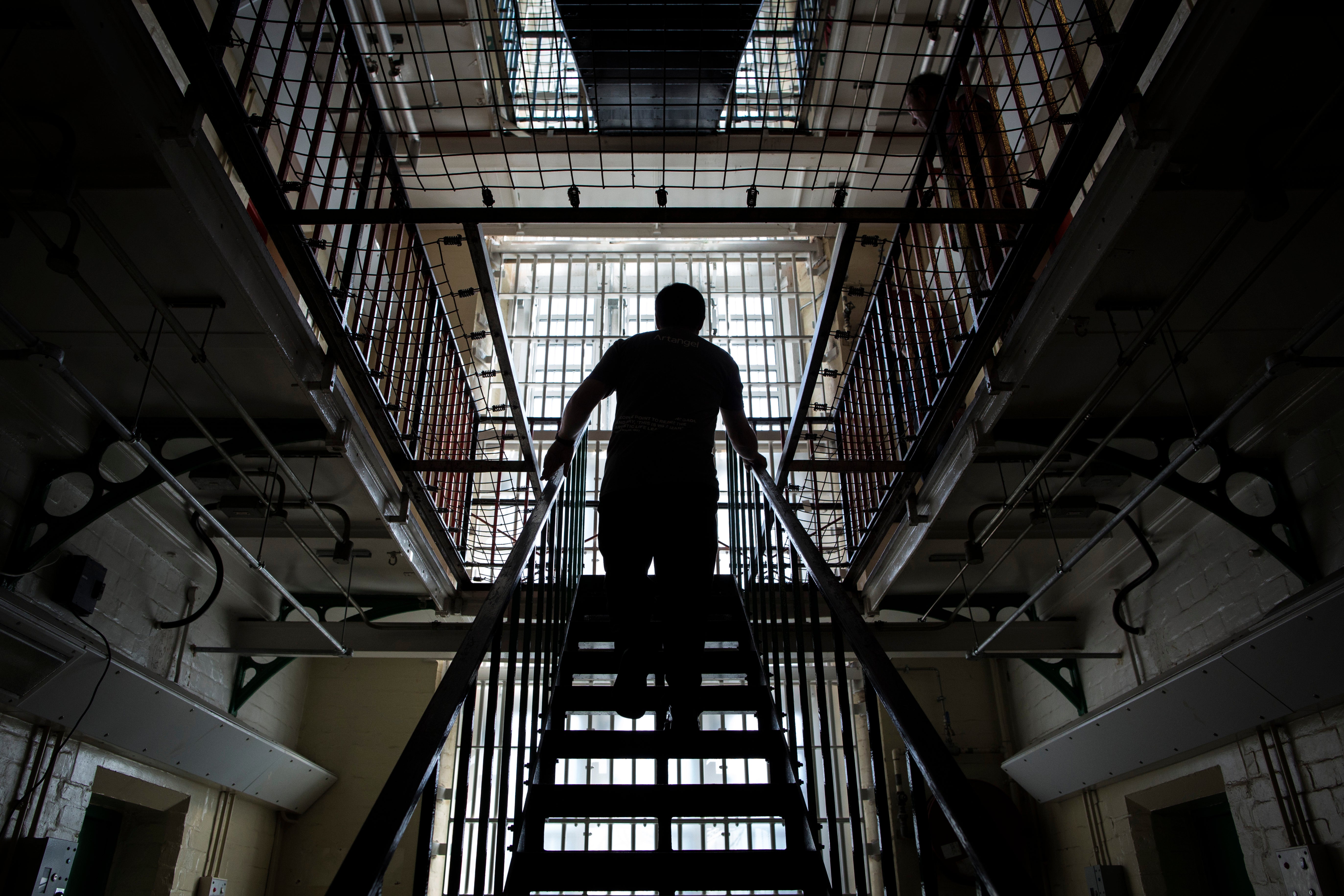
The next time we met, Jimmy brought some of the letters along to show me. He became tearful as he talked about the gentle encouragement in those pages and how much they meant to him. I could see they were smudged and creased, with one or two pages nearly falling apart as he opened them. Clearly, he’d read and re-read them many times, and now he handled them delicately, laying them out on the table like an antiquarian with a rare manuscript. I felt incredibly privileged when he offered to read some excerpts to me aloud, and I thanked him. He was wearing round NHS-issue specs, lending him an owlish look. He nudged them up to the bridge of his nose, then located the bit he wanted to share first. “‘I believe in you, my son, and Allah does too, even if you do not,’” he read slowly. “See what I mean?” I asked him when this was written, trying to better understand the context of the message. “I don’t know,” Jimmy said, turning the page over. “There’s no date.” He thought it had come at a bad time for him, when he was feeling suicidal, as if his life were a waste. He had felt like that a lot. “It must have been after I stopped being Jamal,” he said. “See?” He held up the letter to show me that it opened with “Dear Jimmy”.
He had felt guilty about lapsing as a Muslim and had hated confessing to Abdullah that he was no longer Jamal. But Abdullah had never criticised him about that, writing to say that whatever his name, he was “a beautiful child of God” and his life would not be wasted if he used the rest of it for good. The other extracts Jimmy shared with me that day went on in this vein, full of love, wisdom and support. He stopped often, too choked to continue. Yes, he had been suicidal at the time, yet he did not kill himself, and I gave silent thanks for this generous, good man whose letters had offered Jimmy a lifeline. If his life mattered to just one other person, then it could matter to him too.
Identifying with Abdullah and his faith gave Jimmy a way to be a man who was hopeful and positive, in complete contrast to his mother’s pessimistic vision of him
Sadly, following that flurry of correspondence, the older man stopped writing, and Jimmy learned that he had died after a long battle with cancer. “He’d never said – not a word about it.” I could see the grief remained fresh for him, perhaps not only for Abdullah himself, but for what he represented. Beyond a faith culture, comfort and care, he was filling the role of Jimmy’s absent father. In the wake of Abdullah’s passing, Jimmy made a serious suicide attempt in prison, after which he was once again transferred to Broadmoor. It had taken him a long time to stabilise this time around, but once he felt better, he had asked to see the visiting imam, and slowly he’d restarted his prayer life. Lately, he’d been wondering if he should change his name back to Jamal, but it was confusing because now there was this daughter Leah, who knew about him only as Jimmy. “I don’t know who I am,” he admitted. This was the truest thing he’d said to me, and I told him so. Knowing yourself is a lifetime’s work and a great challenge for everyone.
As we approached the date of the first Fathers Group meeting, Jimmy shared with me that he felt deeply worried about contact with Leah and what she would think of him if they ever met. I understood well the general parental anxiety he was expressing. That fear of being judged and found wanting, the risk of becoming the object of shame or blame for one’s offspring are not unique to those who meet their children for the first time later in life, and it is daunting. King Lear aptly describes the particular pain of the thankless child as being “sharper than a serpent’s tooth”. I try not to offer easy reassurance to my patients, but I did point out to Jimmy that any potential encounter with Leah was in the future, and he would have time and space in the present to plan for it. He could use the Fathers Group to think about this. He was still anxious, though, countering that he knew his medical team were talking about him being ready to go back to prison in the near term, to begin the process of applying for his long-overdue parole. “I mean, what if I get out and then me and Leah meet up, and I’m, like, this . . . this . . .” I wondered if he would fill in the blank with a pejorative like “loser” or “convict” or “murderer”, those seemingly indelible labels.
After a long silence, I decided to try something. “Jimmy, how do you think Abdullah would describe you today?” That stumped him for a while, and then he looked up at me. “I don’t know.” I wasn’t going to let him off the hook. “Would you like to make a guess?” He looked down, frowning in concentration. Then he ventured, “I think he might say we’re all children of God, so that’s what I am.” “Anything else?” “He’d probably say . . . I was born a good person and lost my way, but now I’m better, because Allah by His mercy helped me find my way back so that I can be helpful to others.” I think that might have been a direct quote from one of the letters. As he said it, I noticed he straightened his shoulders slightly and sat taller in his chair, and I felt something lifting a little, like a light veil. We sat together for a while, and it was peaceful. I wished that Abdullah and Leah could see Jimmy now, thinking about them and their importance to him.
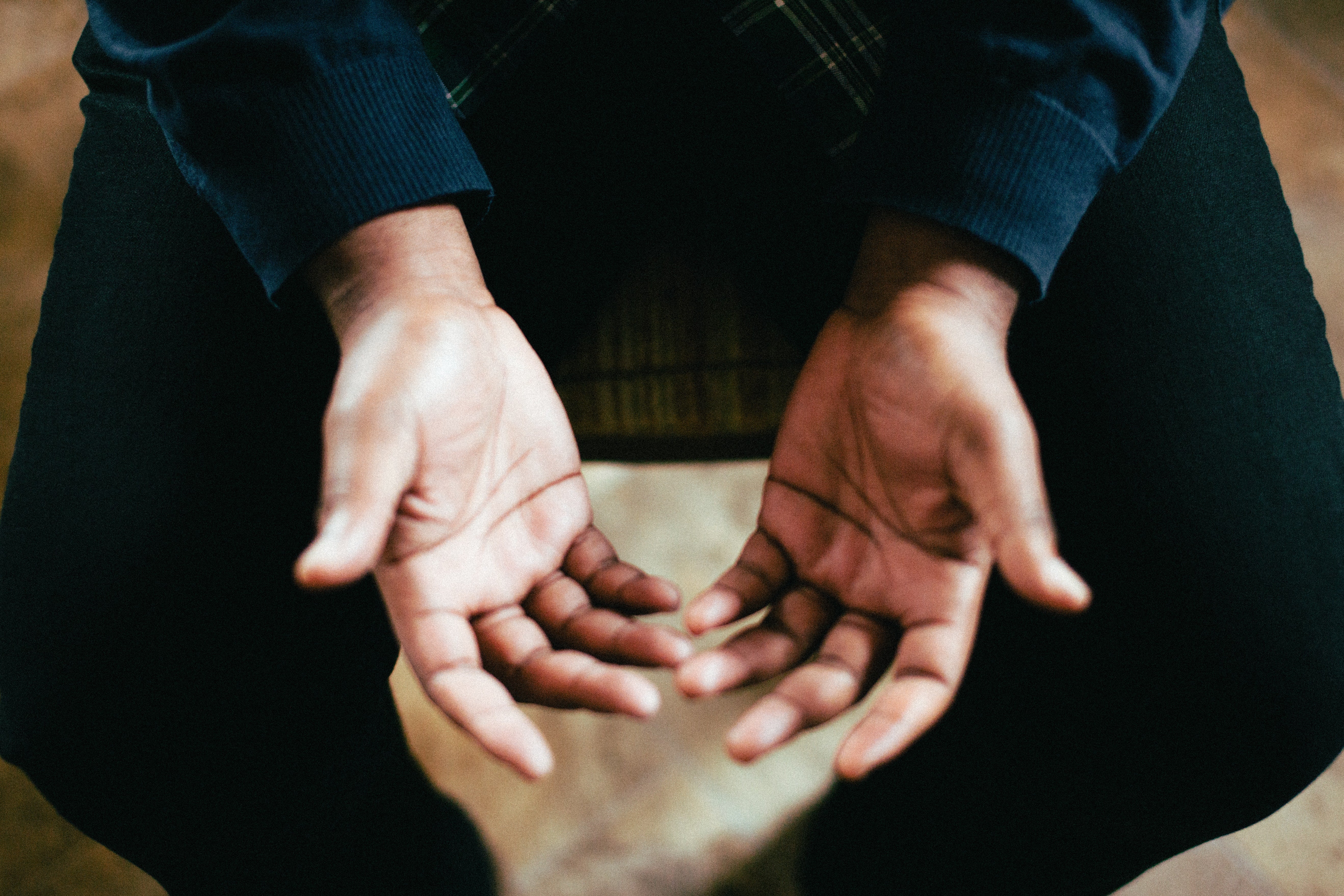
We were in the big meeting room where we had had the first of our therapy sessions, and now, just outside the window, a bird began to sing, loud enough to hear through the thick glass. We both turned to look at it, a grey-brown creature perched on one of the spindly branches of a newly planted tree. I wished, as I so often do, that I knew what type of bird it was. As if reading my thoughts, Jimmy said, “Do you know what that is?” I shook my head. “Same here,” he said. “Don’t know a bloody thing about birds.”
“There’s lots we don’t know, but we can learn,” I said.
He watched the bird for a few minutes, hopping about busily to its own tune, and then said, “I have a thought.” We both laughed, because this had become a kind of motif in recent sessions – his sudden announcements of new thoughts, like green shoots he’d discover at odd moments. He cleared his throat. “I don’t know who my father is, but I got a new one.” I thought of Abdullah, but he might well have meant Allah or the Prophet. “So, Leah, she never knew who her father was either, but now she does, which can help her.” He was mentalising her experience; this was significant and hopeful. Like his daughter, he had been fatherless and had spent time in care when he was young. In combination with other risk factors, that childhood experience and his sense of identity as a “bad seed” had contributed to a long history of using violence towards others to relieve his distress. But then he had found a friendship with Abdullah, which had given him a sense of being valued.
Identifying with Abdullah and his faith gave Jimmy a way to be a man who was hopeful and positive, in complete contrast to his mother’s pessimistic vision of him. In my work, I’ve seen how people need to be given opportunities to change, which can come from a range of sources, including friendships, creative activity and faith practices. All these things offer psychological solutions that far surpass the power of drugs or violence to relieve emotional pain. It was such a good sign that Jimmy was able to see that now. Whatever happened next between him and his daughter, I felt optimistic about his future. In the near term, he would benefit from joining our therapy group and would probably bring some useful insights to a discussion about identity and fatherhood that might help others.
As our final session drew to a close, I asked if he intended to go ahead with changing his name back again. He pondered that for a minute, then said, “Maybe whether I’m Jimmy or Jamal, it doesn’t matter. Not to Leah. Maybe I can just be there for her somehow. I think that’s what Abdullah would say.” He paused. “That’s what he did for me.”
That was such a liberating and beautiful thought, a blossoming of understanding in him, that I could almost have joined the bird and burst into song. Instead, I thanked him and told him again I was so grateful to him for sharing Abdullah’s letters with me, which was such a gesture of trust. I reminded him that the group would start soon, and I asked him how he was feeling about that. “I’m ready,” he told me, his dark gaze level with mine.
That group was meant to start in April 2020, but as so often in my work, the best-laid plans went awry, this time thanks to a global pandemic. Jimmy’s transfer back to prison was delayed, his plan to apply for parole put on hold. All group work was suspended, but we hope to start again soon. Meantime, he has not changed his name back to Jamal, but he does remain committed to his faith practice. Will, his primary nurse, let me know that Jimmy had been writing long letters to Leah, not to send, but to work out what he wants to tell her one day. And now another spring has come, and Jimmy, like all of us, knows more of himself than he did a year ago. What a world it would be if we could all appreciate that much.
Drawing from many encounters and case studies over the years the authors have created composites; the portraits presented here are clinically and psychologically accurate but won’t be found on Google.
Extracted from ‘The Devil You Know: Encounters in Forensic Psychiatry’ by Dr Gwen Adshead and Eileen Horne. Published by Faber, paperback, out 30 June 2022
Join our commenting forum
Join thought-provoking conversations, follow other Independent readers and see their replies
Comments



Bookmark popover
Removed from bookmarks